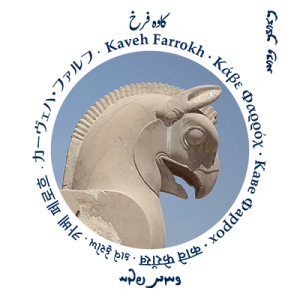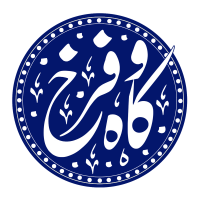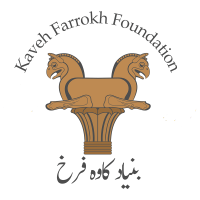The article below (The Daily Princetonian: “Petition challenges Pourdavoud Chair candidate”, Chitra Marti, January 7, 2014) was sent forward to Kavehfarrokh.com by Professor Dariush Borbor (Faculty of Asian and Middle Eastern Studies, University of Cambridge and Director of the Research Institute and Library of Iranian Studies (RILIS) at Tehran). This pertains to the petition initiated by Professor Ehsan Yarshater which challenges Princeton University’s selection of “Pourdavoud Chair in pre-modern Persia”.
Inexplicably, the petition initiated by Professor Yarshater has been disabled; for further details see article below. Note especially the interview with Professor Borbor in the below article.
Dr. Mohammad Ala (Recipient of Grand Prix Film Italia Award in June 2013) made the following revelation on December 14, 2013
Friends:
A little research shows that the person behind this agenda is Professor Dimitri Gutas of Yale, who invented the term Greco-Arabian for scholars such as Farabi, Khwarazmi, Ebne Sina etc. to deny their Persianness. Van Bladel happens to have studied with him. The agenda behind this nomination is not known.- – petrodollars, lobby group(s), or self-promotion, but we must prevent not only this nomination, but the very idea of ‘Greco-Arabian’ which is not related to us (Iranians).
Kindly note that the pictures and captions below did not appear in the original Princetonian report.
================================================================
A petition organized by Columbia professor Ehsan Yarshater surfaced challenging the University’s current candidate for the position of the Ibrahim Pourdavoud Professorship in Persian Studies.
The petition, which has been taken down, argued that having the name of Pourdavoud, a pioneer in the field of pre-Islamic Iranian studies, meant that the professor who occupies the Pourdavoud Chair should continue his work in the field of pre-Islamic studies. But the current candidate suggested by the search committee, according to the petition, was a Greco-Arabic scholar who has not specialized in pre-Islamic culture and who would thus not exemplify the memory of Pourdavoud.
The petition was taken down the week of Dec. 22 for unknown reasons. Yarshater did not respond to a further request for comment as to why the petition had been taken down.
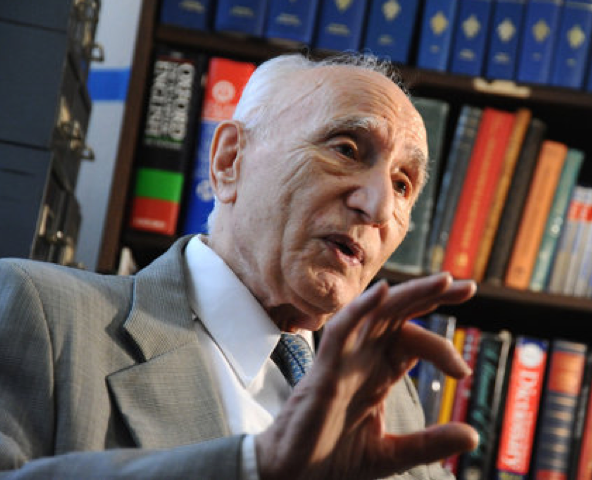 Professor Ehsan Yarshater (Picture Source: NPR.org)
Professor Ehsan Yarshater (Picture Source: NPR.org)
The petition, which was addressed to University President Christopher Eisgruber ’83, copied Sharmin Mossavar-Rahmani ’80 and Bijan Mossavar-Rahmani ’74, whose $10 million donation to the University in 2012 will help establish a Mossavar-Rahmani Center for Iran and Persian Gulf Studies. The Mossavar-Rahmanis did not respond to multiple requests for comment.
However, the Pourdavoud Chair was not established by the Mossavar-Rahmani family. It was separately established by Dr. Anahita Naficy Lovelace ’75 and her husband Jim Lovelace. Dr. Lovelace said they were aware of the petition and declined to comment until after an appointment has been made.
According to Yarshater, the candidate being considered was Kevin van Bladel, a current history professor at Ohio State University. Van Bladel declined to comment for this article and said he had not received any formal offer from Princeton University.
“To allow a chair named after Pourdavoud, who spent all his life teaching and writing about Zoroastrianism and the pre-Islamic culture of Iran,” the petition read, “to be held by someone whose formal academic training has been in Arabic, Syriac, and Greek, and who by and large is unknown in the field, is considered a slap in the face of Iranian Studies, the community at large, and the memory of Pourdavoud.”
Van Bladel has a Ph.D. in Near Eastern Languages and Civilizations from Yale University and was previously an assistant professor of classics at the University of Southern California. He specializes in the cultural and intellectual history of the Near East in the first millennium CE, focusing on the translation of works between Arabic, Greek, Syriac, Latin, Sanskrit and various Iranian languages such as Middle Persian and Arabic. His teaching also focuses on the ancient Mediterranean and Near East.
“In the perspective of my research, the advent of Islam is not the beginning or end of a period; it can be understood only by reference to what came before as much as to what came after,” van Bladel’s OSU biography states.
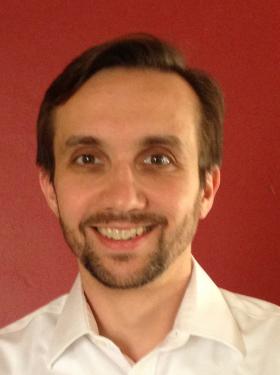 Associate Professor & Chair Kevin van Bladel of Ohio State University (Picture source: OSU).
Associate Professor & Chair Kevin van Bladel of Ohio State University (Picture source: OSU).
Ibrahim Pourdavoud, for whom the chair is named, was a Persian scholar who studied pre-Islamic Iranian history, focusing particularly on Zoroastrianism and Zoroastrian culture. He is perhaps most well known for translating the Avesta, the primary collection of Zoroastrian sacred texts, into Persian and providing explanatory commentary.
Dr. Lovelace said in an email that by naming the chair after Pourdavoud, they intended to “honor him and his life’s work on the occasion of his 125th birthday in 2011, which happened to coincide with
In an interview with The Daily Princetonian, Yarshater acknowledged that although van Bladel has many strengths, they do not lie in the same field Pourdavoud spearheaded.
“The one scholar that Princeton University was thinking to appoint — although they haven’t appointed yet — was not an expert on any of those things that are Persian history, Persian culture or Iranian language. Even though under other standards he is a very good scholar, he would be more appropriate for chairs in Arabic or Greek,” Yarshater said.
Changing the Selection Process
Yarshater also suggested that the selection process be altered so as to better represent the intentions of a chair named for Pourdavoud.
“In order to do justice to the chair, to the donors and to the name of Pourdavoud, the selection committee should include several people of expertise in Iranian studies,” Yarshater said. “Ideally they would advertise the chair, a number of people would apply, and they will then decide who is the best choice for the chair … The committee would compose of people specialized in Iranian studies, not people in Arabic or Greek or Syriac.”
Dean of Faculty David Dobkin, who was also copied on the petition, said in an email that the selection committee for a chair position is typically made of faculty from the relevant department, or of faculty whose departments overlap with the area of the chair. Often, other faculty with broader interests are also included. Then, the search committee will begin placing ads and sending out requests for nominations to leading scholars in the field.
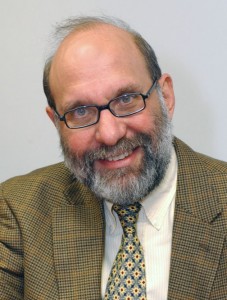 Professor David Dobkin of Princeton University (Picture Source: Princeton Alumni Weekly)
Professor David Dobkin of Princeton University (Picture Source: Princeton Alumni Weekly)
Once the search committee has found a potential candidate, Dobkin said, he or she is proposed to the Advisory Committee on Appointments and Advancements, which solicits input from leading scholars in the field as to the candidate’s suitability for the position.
According to Dobkin, the donor and the University will come to a consensus on a description for a position, and the search committee will begin the selection process from there. Donors are not involved in the identification nor selection of candidates to occupy the chair.
Dobkin declined to comment on the search committee organized for the Pourdavoud Chair, citing the need to uphold the integrity and confidentiality of the selection process.
Greco-Arabic vs. Pre-Islamic
Dariush Borbor, Director of the Research Institute and Library of Iranian Studies in Tehran, signed the petition, citing his personal and academic belief that the current candidate does not meet the ideals of a Pourdavoud Chair.
“My personal feeling, as many other scholars, most of us agree with what Professor Yarshater has written in his letter that this endowment for the professorship at Princeton was made by two Iranians and they wanted to concentrate on Iranian studies,” Borbor said. “The chair which is named after [Pourdavoud] should be occupied by a person who specialized either in the languages of ancient Iran or the religion or generally the culture of ancient Iran.”
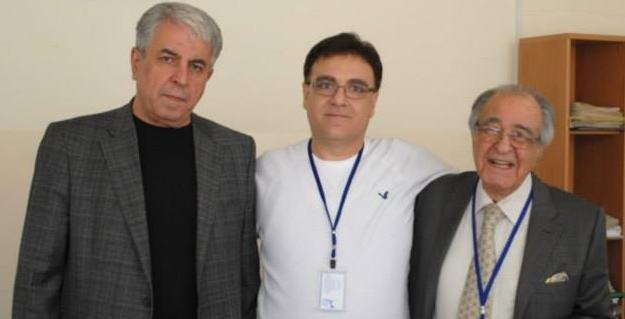 Professor Garnik S. Asatrian (Chair, Iranian Studies Dept., Yerevan State University; Editor, “Iran and the Caucasus”, BRILL, Leiden-Boston), Kaveh Farrokh and Professor Dariush Borbor (Faculty of Asian and Middle Eastern Studies, University of Cambridge and Director of the Research Institute and Library of Iranian Studies (RILIS) at Tehran) at Yerevan State University conference “Shirvan, Arran, and Azerbaijan: A Historical-Cultural Retrospective” (November, 2013). Professor Borbor has often lectured and written about the misconceptions against Iranian Studies perpetuated by Greek scholarship.
Professor Garnik S. Asatrian (Chair, Iranian Studies Dept., Yerevan State University; Editor, “Iran and the Caucasus”, BRILL, Leiden-Boston), Kaveh Farrokh and Professor Dariush Borbor (Faculty of Asian and Middle Eastern Studies, University of Cambridge and Director of the Research Institute and Library of Iranian Studies (RILIS) at Tehran) at Yerevan State University conference “Shirvan, Arran, and Azerbaijan: A Historical-Cultural Retrospective” (November, 2013). Professor Borbor has often lectured and written about the misconceptions against Iranian Studies perpetuated by Greek scholarship.
Like Yarshater, Borbor acknowledged that van Bladel has many strengths in other fields, but that he may not be suited for this position.
“He may be a very good scholar as well, of his own right, but if he is a scholar specialized on Arabic, Syriac and Greek, I don’t think it’s a very suitable choice … Especially the Greek side, because with most of the scholars who were specialized in Greek studies and on the history or culture of Greece, their interpretation of Iranian studies was often very one-sided and sometimes quite wrong,” Borbor said. “I have, myself, written and lectured in many universities about the misconceptions that Greek scholarship has given to Iranian studies.”
Hosi Mehta, president of the Zoroastrian Association of Chicago, signed the petition as well, also citing a concern for the potential misrepresentation of Iranian history.
“Persian history is really rich, and I was surprised that they could not find somebody who would be into that than finding someone who has the Arabic background,” Mehta said. “I read his qualifications, that he was an Arabic scholar, and the concern was that sometimes things get misrepresented … the winner usually writes the history, so it could be changed in different ways. There are people who say the Holocaust never happened.”

